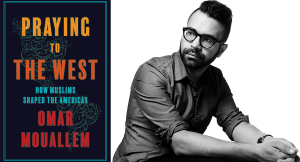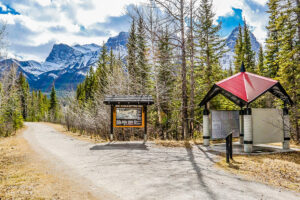On Oct 8, 1971, then-Prime Minister Pierre Trudeau announced multiculturalism as an official government policy. On the 50th anniversary of the announcement, Canadian Geographic is publishing five essays that explore the theme. The series forms part of Commemorate Canada, a Canadian Heritage program to highlight significant Canadian anniversaries. It gives Canadian Geographic a chance to look at these points of history with a sometimes celebratory, sometimes critical, eye.
My father emigrated to Canada from Lebanon in December 1971, when it was on the cusp of a civil war that would eventually kill four percent of the country’s population and displace another quarter. He was 16, but by the time he could legally vote he didn’t have to think about who he’d cast his ballot for: Pierre Elliott Trudeau, the man who spritzed multiculturalism into the crisp Canadian air. Though the official policy felt fragile in those rare moments when he was called a “deport,” or when he overheard complaints of immigrants taking jobs from Canadians, you couldn’t convince Ahmed that Allan had an advantage over him.
Or that Ahmed had an advantage over our Assiniboine neighbours in Alberta. “In Canada,” my father once told me, “if you work hard you will succeed.” Asked if he thought that recent newcomers such as Syrian refugees would have the same shot at success that he had, he said that they have it even easier with so much government support; that kind of direct support didn’t exist in the early ’70s.
The lesson, as I interpreted it, was that labour was the main ingredient in a Canadian’s prosperity; it had nothing to do with race, religion or anything else.
His unshakeable faith in Canada’s multiculturalism project is common amongst his generation of Muslim immigrants. I heard it echoed often from Canadians and Americans alike when I talked to them for my book Praying to the West, for which I travelled from mosque to mosque across 10,000 kilometres in the Western hemisphere. This optimistic outlook, however, was not always shared by my dad’s generational peers who migrated in the last 20 years, and it was rarely felt by their children, my Millennial and Gen Z counterparts, even those who gained citizenship as birthright.
To us, multiculturalism is, at best, a work in progress, but less than that. It’s apparent in the word’s dual connotations, how it’s sometimes used by one side of the political spectrum to deflect attention from systemic racism, and by the other side to justify these ills. Over the last few elections, we’ve seen how “multiculturalism” is often employed as a dog-whistle to vilify our Islamic heritage, to fearmonger about the dangers of cultural practices that this policy, in their opinions, protects to the detriment of others.
At the root of these sentiments is an exaggerated focus on a religious minority born out of fear. According to 2015 and 2017 public surveys, most Canadians disapproved of the right of ultraorthodox Muslim women to wear face coverings such as a niqab in public spaces. And three in four Ontarians — living in Canada’s most diverse province — believed Muslim values are fundamentally different from their own.
Of course, religion wasn’t on père Trudeau’s mind when, on October 8, 1971, he introduced an official policy of multiculturalism with these words: “No citizen or group of citizens is other than Canadian, and all should be treated fairly.” Quebec separatism was on the mind, language and ethnicity was on the mind, but “religion” was barely an afterthought. It was only mentioned once in the ensuing parliamentary debate, shortly after lunchtime recess, and merely as linguistic flourish to the many elements of cultural diversity that endow “all Canadians with a great variety of human experience.”
Fifty years later, religion and the right of individuals to practice it in accordance with their own personal exegesis, has become synonymous with Canadian multiculturalism and the rights it protects. And Islam in particular has become a national Rorschach test about the value of Western pluralism. Depending on whom you ask, the growth of Canada’s Muslim population — from invisible and infinitesimal in 1971 to visible and influential today — is a sign of how far multiculturalism has come, how far it has to go, or that it has gone too far.
To be certain, Islam as Canada’s fastest growing religion has less to do with multiculturalism and more to do with immigration policy transformations in the 1960s. The first substantial waves of Muslim immigrants, which included my parents, indeed overlapped with multiculturalism as policy and eventually law. But their arrivals were a consequence of a new points-based system and refugee commitments replacing decades of blatantly racist rules designed to stymie immigrants of colour from becoming Canadian.
That said, official multiculturalism made it possible for members of these communities to prosper without having to abandon any more of their identities than they’d already left behind in their homelands. Even as the winds of Islamophobia blew in from the Palestinian-Israeli conflicts, Iranian Islamic Revolution, Gulf War and, of course, September 11 attacks, Muslim Canadians have by and large been able to safely and peacefully claim their religious holidays, infrastructure and symbols in public. And, because many Muslims practice and often wear their religion as a matter of daily life, they have become symbols, too.
The irony is most Canadians still want multiculturalism, at least as a symbol of national identity. According to Environics Institute surveys, most of us agree that multiculturalism is central to our national identity — a symbol more important than hockey, the CBC and (perhaps unsurprisingly) the Queen — and multiculturalism, at least in our collective minds, has also surpassed peacekeeping and foreign aid as our most positive contribution to the world. This attitude only changes when you factor into their minds the possibility of a Muslim neighbour, quite literally. The number of Canadians who admit wariness about living next to an immigrant triples if it is stated that the imaginary neighbour is Muslim; in Quebec, concerns multiply six-fold.
To this swath of citizens, Muslims aren’t proof of all Canadians’ abilities to blend into a single cohesive society; they’re evidence of some Canadians reluctance or inability to “blend in,” at the expense of a cohesive society. That is, after all, the expressed rationale for Quebec’s Bill 21, a ban on religious symbols whose main target, everyone agrees, is Muslim women and girls. Less subtly, it’s the rationale for one of the People’s Party of Canada’s core platform promises, to repeal the Multiculturalism Act and defund multiculturalism initiatives, thereby ending a 50-year experiment to divide Canadians into “a collection of ethnic and religious tribes living side by side.”
While it’s true the People’s Party was smacked down in the last two elections (though their share of the popular vote more than tripled to just over five per cent), public opinion polls show you don’t have to veer to the fringes to find such fraught opinions of multiculturalism’s failed virtues. A growing number of Canadians’ attitudes toward multiculturalism are hardening; the ideal has come to symbolize the perils of an official policy of making reasonable cultural accommodations in the name of national unity. According to an Angus Reid poll in 2016, nearly 70 per cent of Canadians thought minorities are not doing enough to fit in, compared to just over half of U.S. citizens asked the same question. Conceived as a project to distinguish ourselves from our southern neighbours, multiculturalism appears to have done just that, but not in ways that its godfather had hoped.
Canadians “living side by side” in ethnic enclaves, as the People’s Party suggests, was never the point of multiculturalism when it was proposed, adopted as policy and gradually cemented into law. The point was, and still is, a mechanism for integration — a way to ease newcomers, old stock Canadians and Indigenous Peoples into agreement on a single, albeit nebulous, national identity project.
Somewhere along the way, the discourse changed and multiculturalism became “diversity for diversity’s sake,” leaving many, namely white, conservatives, with the feeling that they were participating in a frivolous experiment. They no longer understand the purpose of it.
But most newcomers do, and I think most Muslims do, whether they belong to mine or my parents’ generation. Multiculturalism is a more honest account of why the people of this nation look more like the Old World’s inhabitants than the New World’s and, whether it was intended so or not, it is, at least, a method to redeem the nation for the sins that made it so.
Omar Mouallem is an Alberta-based writer, documentary filmmaker, and educator. His new book is Praying to the West: How Muslims Shaped the Americas (Simon & Schuster) and new film is The Last Baron (CBC Gem).




